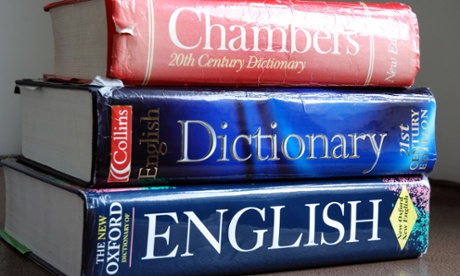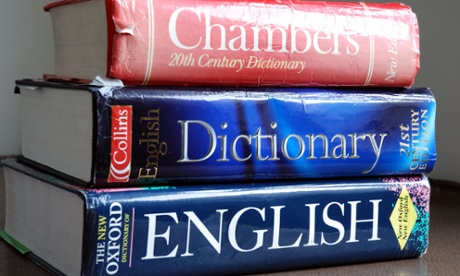
I remember it like it was literally yesterday. I was sitting on a bench in Central Park nearly four years ago when my ears literally perked up at the egregious and altogether jarring utterance that literally hurt to hear: the misuse of the word “literally”. In this case, the culprits were two high school girls, going on about being “literally soaked from head to toe” by the (light) rainfall that afternoon. I didn’t understand. What did they mean? They were barely wet! What could possibly compel someone to use a word to mean its opposite?
As it turns out, this language misuse has become an all too common trend within modern-day American and British English vernacular. We have grown accustomed to using the word “literally” when we mean “figuratively”, lobbying for added effect while abandoning the precise and strict meaning of the one word whose use is constrained to precise and strict meaning. And we’re doing so at a dangerously fast pace: since 2005, Google searches for “literally” have more than quadrupled, suggesting both a public acceptance of the term however it’s used and a general curiosity about its use (leading search terms include “literally + meaning”, “definition + literally”, and “literally + means”). We have also seen references to “literally” in books nearly triple since 1700.
Masked as hyperbole, the misuse of this term should probably not surprise language purists as much as it does. As the Oxford English Dictionary (OED) editor at large Jesse Sheidlower pointed out last year, “literally” has been used in a contradictory way for centuries by some of the most famous and well respected authors. Mark Twain described Tom Sawyer as “literally rolling in wealth”. F Scott Fitzgerald remarked that Jay Gatsby “literally glowed”. James Joyce wrote about a Mozart piece as “literally knocking everything else into a cocked hat”. As Sheidlower notes, authors’ use of “literally” to mean its opposite was actually quite popular in the 18th and 19th centuries, extending to other writers such as Jane Austen, Charles Dickens and Henry David Thoreau. This trend prompted a cautionary denunciation by lexicographer HW Fowler in 1926, who complained: “We have come to such a pass with this emphasiser that … we do not hesitate to insert the very word that we ought to be at pains to repudiate.”
Over time, we’ve seen words take on opposite meanings for a range of reasons (they even have a name: auto-antonyms or contranyms). For instance, “symposium” used to mean a drinking party, “egregious” used to mean remarkably good and “harlot” used to mean a man of good cheer. Some words have even retained their contradictory meanings, like “sanction” (meaning both to permit and to punish) and “oversight” (meaning both supervision and not noticing something). Similarly, we know that younger generations often twist words’ meanings for colloquial purposes. Words like “sick” and “ill” are used positively to connote talent and coolness, quite distinct from their traditional meanings of poor health. Same with “wicked,” “gnarly,” “dope” and countless others. Whatever the cause for this language (d)evolution, “literally” is the next victim, and arguably the most significant.
Defenders of this misspeak are quick to point to the dictionary for vindication, and they’re right. In September 2011, the OED added the opposite meaning of “literally”, seemingly arming misusers with the credibility needed to shoot down any criticisms of their word crime. But such an inclusion should not be mistaken. Dictionaries are merely reflections of language, intended to capture words that reach a critical mass of usage by the population. The OED describes its purpose as the following: “The Oxford English Dictionary is not an arbiter of proper usage, despite its widespread reputation to the contrary … Its content should be viewed as an objective reflection of English language usage, not a subjective collection of usage ‘dos’ and ‘don’ts’.”

The OED’s caveat reveals two important facts: one, that a word defined one way in the dictionary does not necessarily constitute its proper use; and two, that words’ meanings evolve in a kind of human (versus natural) selection, ostensibly with no ultimate or fixed definition (as with “sanction” and “oversight”). The challenge with the latter, however, is that certain words do have unequivocally fixed associations – like numbers, colours and directions. For instance, if “five” became “four,” “black” became “white” and “up” became “down,” we could no longer describe the basic makeup of our hands, or how a kettle appears, or where to turn to look at a bird. We would lose the values bound to each word, thereby stripping them of the mutually accepted associations we need to communicate and risking linguistic anarchy.
So where does this revelation leave us with the definition of “literally”? For most, it won’t change anything. People will continue to be “literally soaked from head to toe” for generations, regardless of age, education level and of course whether or not they are indeed saturated with water from the upper-most part of their body to the bottom-most. But what results from forsaking the exact meaning of the word that means “exact meaning” remains to be seen. Civilisation could go on just fine despite the confusion, or we could find that “literally” was the (figurative) fulcrum holding up the institutional pillars of language, its misuse crumbling our most important social construct.
Adam Lewis is a writer based in New York City. He focuses on global efforts to eradicate poverty, disease and the general mistreatment of people and words. You can follow him on Twitter at @Lewisam10.
